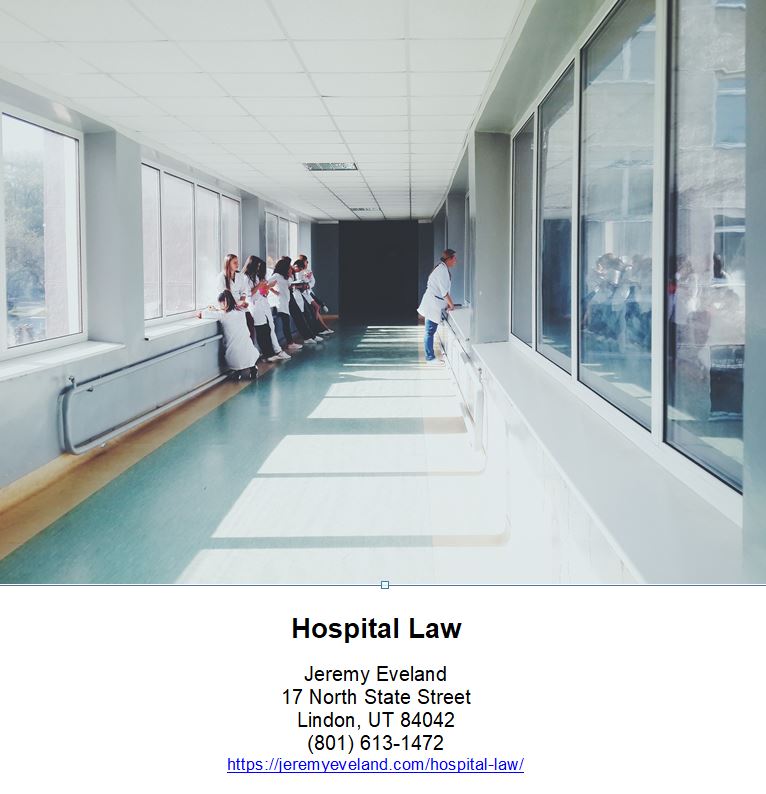In today’s complex world, understanding constitutional rights is essential for both individuals and businesses alike. Constitutional rights form the cornerstone of our legal system, guaranteeing certain fundamental freedoms and protections. As a business owner, it is crucial to have a comprehensive understanding of these rights to navigate the intricate legal landscape effectively. Whether you are facing legal challenges or seeking to protect your business interests, consulting with a knowledgeable lawyer can provide the guidance you need. In this article, we will delve into the realm of constitutional rights, addressing common questions and concerns surrounding this crucial area of law. By gaining insight into constitutional rights, you can make informed decisions and safeguard your business interests while upholding the principles that underpin our legal system.
Overview of Constitutional Rights
Constitutional rights refer to the fundamental liberties and protections guaranteed to individuals under the United States Constitution. These rights are designed to safeguard citizens from government intrusion and ensure fairness, justice, and equality for all. Constitutional rights establish the framework for a democratic society and serve as the bedrock of our legal system.
Definition of Constitutional Rights
Constitutional rights are legal rights that are enshrined in the Constitution and its amendments. They are innate to individuals and cannot be taken away without due process of law. These rights include, but are not limited to, freedom of speech, the right to a fair trial, protection against unreasonable searches and seizures, and equal protection under the law.
Importance of Constitutional Rights
Constitutional rights are of paramount importance as they protect individual freedoms, limit government power, and ensure the rule of law. These rights provide a framework for resolving conflicts, promoting social justice, and maintaining a balance between the rights of individuals and the needs of society as a whole. Without constitutional rights, individuals would be vulnerable to arbitrary government actions and the erosion of their liberties.
Sources of Constitutional Rights
The primary source of constitutional rights in the United States is the U.S. Constitution, including its Bill of Rights and subsequent amendments. Additionally, court decisions and legal precedents interpret and expand upon these rights. Constitutional rights can also be derived from state constitutions and international treaties, such as the Universal Declaration of Human Rights.
Types of Constitutional Rights
Constitutional rights can be categorized into several broad categories, each addressing different aspects of an individual’s life and freedom.
Civil Rights
Civil rights encompass a broad range of rights aimed at protecting individuals from discrimination and ensuring equal opportunities. These rights include freedom of speech, freedom of religion, freedom from discrimination based on race, gender, or other protected characteristics, as well as the right to privacy.
Political Rights
Political rights focus on an individual’s participation in the democratic process. These rights include the right to vote, the right to run for public office, and the right to engage in political activities, such as peaceful protests and assembly.
Economic Rights
Economic rights pertain to the protection and promotion of an individual’s economic well-being. These rights can include the right to own property, the right to engage in commerce, and the right to fair and just working conditions.
Social Rights
Social rights encompass rights related to healthcare, education, and social welfare. These rights ensure access to essential services and aim to create a more equitable society. Examples of social rights include the right to healthcare, the right to education, and the right to a basic standard of living.

History of Constitutional Rights
Origins of Constitutional Rights
The origins of constitutional rights can be traced back to the Magna Carta in 1215, which established certain protections for English nobles. The concept of constitutional rights further developed during the Age of Enlightenment and the American Revolution, where the idea of individual liberties and limited government gained prominence.
Evolution of Constitutional Rights
Constitutional rights have evolved over time through legal interpretations and amendments to the Constitution. The Bill of Rights, added to the Constitution in 1791, explicitly outlined specific individual rights. Throughout history, significant social and political movements have also played a crucial role in expanding constitutional rights, such as the Civil Rights Movement and the feminist movement.
Landmark Cases
Landmark cases have shaped the interpretation and application of constitutional rights. These cases establish precedents and provide guidance for future legal decisions. Examples include landmark cases such as Brown v. Board of Education, which declared racial segregation in public schools unconstitutional, and Roe v. Wade, which recognized the constitutional right to privacy and a woman’s right to choose an abortion.
Constitutional Rights and Business
Impact of Constitutional Rights on Businesses
Constitutional rights directly affect businesses and shape the legal framework within which they operate. For example, the First Amendment freedom of speech protects businesses’ rights to express their views and engage in commercial speech. Additionally, the Fourth Amendment protection against unreasonable searches and seizures plays a crucial role in safeguarding businesses’ privacy and confidential information.
Businesses’ Obligations towards Constitutional Rights
Businesses also have responsibilities and obligations towards constitutional rights. They must comply with laws and regulations that protect individuals’ rights, such as non-discrimination laws and privacy regulations. Moreover, businesses should strive to create inclusive and fair environments that respect employees’ constitutional rights, promoting diversity and equal opportunity.
Examples of Constitutional Rights in Business
Constitutional rights can intersect with various aspects of business operations. For instance, a business may face First Amendment issues when it comes to advertising practices or the use of trademarks and copyrights. Additionally, businesses may encounter Fourth Amendment concerns when dealing with government inspections or investigations. It is essential for businesses to navigate these issues while respecting individuals’ rights and adhering to legal requirements.
Limitations on Constitutional Rights
Balancing Constitutional Rights with Public Interest
Although constitutional rights are fundamental, they are not absolute. The government has the authority to impose reasonable limitations on these rights when there is a compelling public interest, such as protecting national security or public safety. Balancing individual rights with the greater good can be a complex task, and courts play a vital role in determining the constitutionality of such limitations.
Time, Place, and Manner Restrictions
Constitutional rights, particularly freedom of speech and assembly, can be subject to time, place, and manner restrictions. These restrictions ensure that the exercise of these rights does not disrupt public order or infringe upon the rights of others. For example, regulations on the location and timing of protests or limitations on the use of amplification devices during rallies are common time, place, and manner restrictions.
Compelling State Interest
In certain situations, the government may impose restrictions on constitutional rights based on a compelling state interest. This typically occurs when the government can demonstrate that limiting a particular right is necessary to achieve an essential government objective. The stricter the scrutiny applied to the limitation, the stronger the government’s justification must be.
Defending Constitutional Rights
Role of Lawyers in Defending Constitutional Rights
Lawyers play a crucial role in defending constitutional rights by advocating for individuals and organizations facing violations of their rights. They provide legal representation, guidance, and expertise in challenging unconstitutional actions and seeking remedies in the court system. Lawyers help ensure that constitutional rights are upheld and that individuals have a voice in the legal process.
Challenges in Defending Constitutional Rights
Defending constitutional rights can be challenging due to the complexity of constitutional law and the potential resistance from opposing parties. Attorneys must thoroughly understand the relevant constitutional provisions, legal precedents, and procedural requirements to build a strong case. Additionally, they must be prepared to address counterarguments and navigate potential roadblocks in the legal system.
Strategies and Tactics for Defending Constitutional Rights
When defending constitutional rights, lawyers employ various strategies and tactics tailored to each particular case. These may include filing lawsuits, drafting legal briefs, conducting investigations, gathering evidence, presenting oral arguments, and negotiating settlements. Lawyers utilize their legal expertise to assess the unique circumstances of each case and develop the most effective approach for protecting their clients’ constitutional rights.

Constitutional Rights in the Digital Age
Privacy Rights
Privacy rights in the digital age have become a significant topic of concern. The Fourth Amendment protection against unreasonable searches and seizures extends to digital communications and personal data stored on electronic devices. Individuals have the right to be free from unwarranted government intrusion in their digital lives, and businesses must respect privacy regulations when handling customer data.
Free Speech Online
The First Amendment protection of freedom of speech applies to online platforms and social media. Individuals have the right to express their opinions and engage in public discourse without undue restrictions. However, private internet platforms may impose their own content moderation policies, subject to certain statutory limitations, to maintain community standards and prevent abuse.
Digital Searches and Seizures
The Fourth Amendment prohibition against unreasonable searches and seizures also applies to digital searches and seizures. Law enforcement agencies must obtain proper search warrants and adhere to constitutional standards when accessing individuals’ digital information. The evolving nature of technology presents new challenges in balancing individuals’ privacy rights with the needs of law enforcement.
Constitutional Rights and Criminal Justice
Right to Legal Counsel
The right to legal counsel is a fundamental constitutional right guaranteed by the Sixth Amendment. It ensures that individuals accused of a crime have the right to legal representation throughout the criminal justice process. This right helps level the playing field between the accused and the government, ensuring a fair trial and protecting against unjust convictions.
Protection from Unreasonable Searches and Seizures
The Fourth Amendment extends to criminal investigations and safeguards individuals from unreasonable searches and seizures conducted by law enforcement. This protection ensures that evidence obtained through illegal means cannot be used against an accused person in court. It promotes the integrity of the criminal justice system and protects individuals from government overreach.
Due Process Rights
Due process rights, guaranteed by the Fifth and Fourteenth Amendments, protect individuals from arbitrary government action and ensure fair treatment in the criminal justice system. These rights encompass elements such as the right to a fair and impartial trial, the prohibition of double jeopardy, and the protection against self-incrimination. Due process rights serve as safeguards against the abuse of power by the government.

Constitutional Rights and Equality
Equal Protection under the Law
The principle of equal protection, established by the Fourteenth Amendment, ensures that all individuals are treated equally under the law. It prohibits discrimination based on race, gender, national origin, or other protected characteristics. Equal protection rights play a crucial role in promoting equality and social justice in various aspects of life, including education, employment, and public accommodations.
Affirmative Action and Constitutional Rights
Affirmative action policies aim to redress past discrimination and promote diversity by providing opportunities to historically underrepresented groups. These policies have been the subject of constitutional challenges, with courts weighing the balance between promoting equality and avoiding reverse discrimination. The constitutionality of specific affirmative action policies may vary based on the specific context and criteria used.
Gender and Sexual Orientation Rights
Constitutional rights play a significant role in fighting for gender and sexual orientation equality. The equal protection clause has been instrumental in advancing LGBTQ+ rights, recognizing same-sex marriage, and prohibiting discrimination based on sexual orientation or gender identity. Additionally, the right to privacy has provided a foundation for reproductive rights and the recognition of a woman’s right to choose.
FAQs about Constitutional Rights
What are constitutional rights?
Constitutional rights are fundamental liberties and protections guaranteed to individuals under the United States Constitution. They include rights such as freedom of speech, the right to a fair trial, and protections against unreasonable searches and seizures.
What happens if my constitutional rights are violated?
If your constitutional rights are violated, you may have the right to seek legal remedies. It is essential to consult with an attorney experienced in constitutional law to assess your situation and determine the appropriate course of action.
Can constitutional rights be limited or restricted?
While constitutional rights are fundamental, they are not absolute and can be subject to limitations and restrictions. The government may impose reasonable restrictions on constitutional rights when there is a compelling public interest, such as protecting public safety or national security.
How can I protect my constitutional rights?
To protect your constitutional rights, it is crucial to be informed about the specific rights granted to you and stay updated on legal developments. If you believe your rights have been violated, consult with a knowledgeable attorney who can guide you through the legal process and help you assert your rights.
What should I do if my business violates someone’s constitutional rights?
If your business violates someone’s constitutional rights, it is essential to address the situation promptly and take appropriate corrective measures. Consult with an attorney who can assess the situation, navigate potential legal consequences, and develop a strategy to rectify the violation.


















